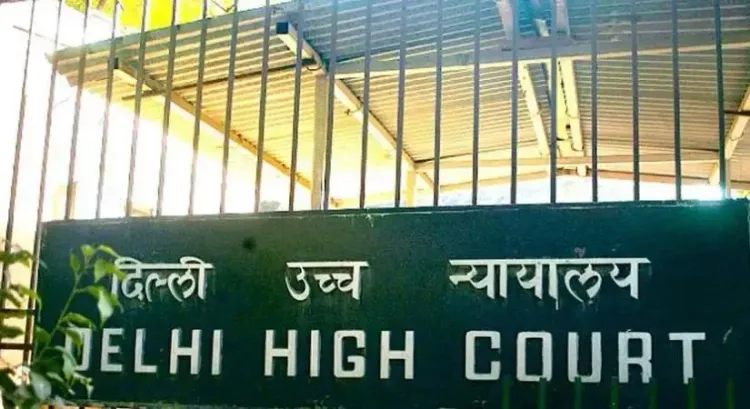Did the Delhi HC Support ED's Actions Against a Real Estate Firm?

Synopsis
Key Takeaways
- Delhi High Court supports Enforcement Directorate actions.
- Petitioner fined Rs 1.25 lakh for misleading claims.
- Real estate firm accused of Rs 1,317 crore misappropriation.
- Importance of transparency in financial investigations highlighted.
- Legal accountability reinforced through the ruling.
New Delhi, July 3 (NationPress) In a significant boost for the Enforcement Directorate (ED), the Delhi High Court has dismissed a petition along with imposing a fine of Rs 1.25 lakh on the petitioner, who alleged that the probe agency displayed bias toward a real estate firm. The company is under scrutiny for alleged misappropriations amounting to Rs 1,317 crore related to bank loans and land transactions in Gurugram, Haryana.
Justice Manmeet Pritam Singh Arora issued a stern rebuke to petitioner Gulshan Babbar for hiding information regarding his multiple petitions that claimed shortcomings by the investigative agencies and the real estate entity IREO Residences.
Upholding the ED’s actions thus far against the firm and its officials, Justice Arora stated, “All the writ petitions submitted by the petitioner are dismissed due to lack of locus standi and non-maintainability.”
The ED revealed that the total identified proceeds of crime in this Prevention of Money Laundering Act, 2002 (PMLA) case amounted to Rs 1,376 crore, which has been secured via attachment.
In response to the petitioner’s claims that the ED had neglected to act against the company for the alleged misdirection of bank loan funds, the agency clarified, “The loan transaction of Rs 600 crore and its claimed illegal diversion has not been incorporated into the current PMLA case as the lending banks have not lodged any criminal complaint.”
The court accepted the ED's stance, asserting, “The petitioner’s assertion that the total proceeds of crime are Rs 4,246.22 crore, with a substantial portion remaining unattached, lacks substantiation.”
Justice Arora remarked, “The petitioner’s actions in failing to disclose the existence and pending status of prior writ petitions, the intentional misrepresentation of the court’s orders, and false claims of being a financial investor in the IREO Projects indicate that the petitioner approached this court with unclean hands.”
The High Court also imposed a cost of Rs 25,000 for each petition on the petitioner for knowingly concealing the pendency of other petitions, making false declarations, and misrepresenting previous court orders.
“The total cost of Rs 1,25,000 must be deposited with the Delhi High Court Legal Services Committee (DHCLSC) within two weeks,” stated the court.
The petition filed by Babbar sought directives for statutory authorities, including the ED, to investigate the alleged embezzlement of funds by a real estate firm, its affiliates, and its directors, Lalit Goyal and Sapna Goyal.
Babbar contended that while the ED identified Rs 4,246 crore as proceeds of crime, it only attached properties worth Rs 1,317 crore, seemingly omitting high-value assets such as 149 acres of prime land in Delhi, properties in Gurugram, and overseas investments.
The petitioner alleged bias and collusion in the investigation, urging the ED to file a case under the PMLA and issue a Provisional Attachment Order (PAO) under Section 5(1) of the Act, barring the private respondents and others from disposing of the proceeds of crime.










